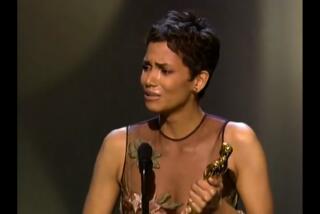You’re welcome
I’m at that stage in life where I have decided to start taking more things personally. There are few setbacks or annoyancesunruly haircuts, bum lottery numbers, the bad behavior of other driversthat you can’t make more piquant by taking private offense and intuiting layers of intentional insult that may or may not be there.
So it was with a mixture of satisfaction and umbrage that I noted, then scanned, then read with a copy editor’s intensity, the more than three pages of acknowledgments in my friend and ex-colleague Brian Doherty’s new history of libertarianism, Radicals for Capitalism, and discovered my own total absence.
I don’t believe I or anybody is entitled to automatic gratitude, but the acknowledgments in Radicals are capacious enough to include many people whose connections to the final work are even more dubious than my own. People who provided no assistance to the author or the book get thanked. As do proprietors of favorite coffee shops (who I don’t think were providing the author impromptu workspaces free of charge). Nearly all current, recent, and even several long-gone staffers at Reason magazine, where Doherty and I worked together for five years, get thankedincluding several people who I know for sure didn’t do a damn thing to help. Reason summer interns get lengthy proper-name credits. Even several people who are notable mainly as enemies of the author, who have distinguished themselves by trying to thwart him and suppress his effortsthey get thanked. But me? Nothing!
When I call Doherty a “friend” I am of course using the old journalistic trick whereby anybody referred to as “my friend” or “my good friend” in the beginning of an article will be repeatedly stabbed in the back by the end. But Doherty and I actually are friends, both socially and professionally. Last week I attended a Radicals reading and commiserated as the author robustly condemned some third party (recipient of a full sentence in the acknowledgments) who hadn’t bothered to attend.
Nor is friendship my only standing to bellyache. In doling out acknowledgments, there are several standard tiers below the de rigeur professional level of the agent (who is thanked for doing her job) and the editor (who, in this era of bloated publications, is thanked for not doing hers). Family and friends are duly recognized for their love and support. Colleagues who covered for the author during real or concocted sabbaticals get a high-five. Credit goes to comrades and fellow travelers who talked through the subject matter with the author and offered blazing insights. If you’ve thrown some paying freelance work the author’s way, you’ll get a show of gratitude. Associates who read through early drafts and provided feedback receive their reward. On every one of these levels I merited a pat on the back.
Is this my first such Chad Lowe moment? It is not. Radicals for Capitalism is at least the fifth book (but who’s counting?) for which I have had an unimpeachable, unrequited claim on an acknowledgment. In fact, this has happened so many times that I’d like to imagine these individual slights are just minor facets of a gigantic superslight, a general conspiracy to avoid conceding my centrality to so much cultural activity. That would be a real payoff: the idea that I’m Banquo’s ghost, that my role in the creation of Radicals for Capitalism is so huge the author is actually afraid to recognize it.
Unfortunately, the small-stakes game of opinion journalism and public policy literature doesn’t admit any kind of conspiracy a normal person would care about. Fights over the acknowledgments in works of low-wattage nonfiction lack the sheen and glamour of the more celebrated Oscar or Emmy acceptance-speech snubs. There are no formal gowns or swimming pools in the book business, just a dull hum of drudgery, remainder tables, and embarrassed coughing during the questions period at author readings. I don’t know that anybody’s ever made a fuss over not being thanked in a book. Maybe I’m the first.
If so, this article might be a step toward salving the special sting in these repeated oversights: the suspicion that Cavanaugh isn’t getting appreciation not out of any general policy against him but because nobody’s thinking about him at all.
The low state of Catholic theology these days means nobody gives much thought to sins of omission, but who wouldn’t rather be hated than forgotten? Coverage of famous slights are almost always beside the point, because if you forget to thank somebody who’s already famous, nobody gets hurt. That’s why the most notable news in this year’s roundup of Academy Awards flubs and snubs wasn’t that anybody had been left out, but that screenwriters, that least appreciable of all the social orders, had been included.
That might not be immediately apparent to people who don’t bother with the petty gripes of the un-famous. Wars have been fought over real or perceived insults; but a forgotten acknowledgment is an injury because it doesn’t have any significance to anybody but you. It’s a no-confidence vote in your career prospects; for all the recognition-worthy categories I’ve listed above, the decision to thank or not to thank generally comes down to one question: Do I need to kiss this guy’s ass?
That the answer in my case always seems to be “no” is a pretty clear indication that I’m doing something wrong. If I had some impressive hiring-and-firing power, if I seemed like an up-and-comer rather than a down-and-outer, or even if my job title didn’t include that mark of shame “web,” you can be sure I’d be getting more shoutouts than Jesus at the Grammys.
As you might guess, that truth is a lot harder on me than it is on you. But I thank you for reading.
Tim Cavanaugh is the web editor of The Times’ editorial page.
More to Read
A cure for the common opinion
Get thought-provoking perspectives with our weekly newsletter.
You may occasionally receive promotional content from the Los Angeles Times.










